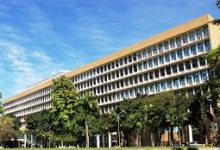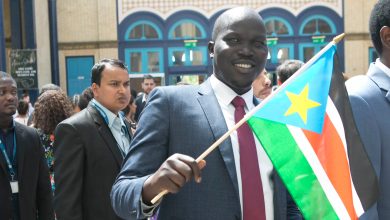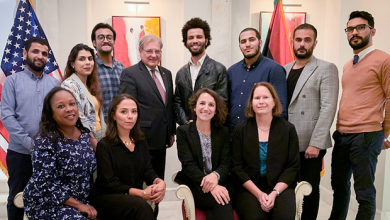NDDC Undergraduate Scholarship Application 2024/2025
Education is a critical tool for personal and community development. In the Niger Delta region of Nigeria, the Niger Delta Development Commission (NDDC) has recognized this fact and is committed to enhancing the educational opportunities for its citizens through the NDDC Undergraduate Scholarship.
This initiative is aimed at empowering young individuals by providing them financial assistance to pursue undergraduate studies in Nigerian universities. If you’re from the Niger Delta region and have been dreaming about furthering your education but are constrained by financial hurdles, the NDDC Undergraduate Scholarship could be your golden ticket.
Who is Eligible for the NDDC Scholarship?
The Niger Delta Development Commission (NDDC) scholarship provides a unique opportunity for individuals from the Niger Delta region to further their education without the burden of financial constraints. However, to ensure that the support reaches those who need it most and who are poised to contribute significantly to the development of the region upon the completion of their studies, the NDDC has set forth specific eligibility criteria. Here’s a detailed look at who can apply for the NDDC Undergraduate Scholarship:
- Residency Requirement: Applicants must be citizens of Nigeria and permanent residents of one of the nine states in the Niger Delta region. These states include Abia, Akwa Ibom, Bayelsa, Cross River, Delta, Edo, Imo, Ondo, and Rivers. Proof of residency and indigeneship will be required as part of the application process.
- Educational Background: Candidates must have completed their secondary education and possess a Senior Secondary School Certificate (SSCE) or its equivalent with at least five credits, including Mathematics and English Language, in no more than two sittings.
- University Admission: Applicants must have secured admission into a recognized Nigerian university for a full-time undergraduate program. Evidence of university admission, such as an admission letter, will be necessary for the application.
- Academic Performance: A high level of academic performance is expected. Applicants must have a minimum Cumulative Grade Point Average (CGPA) or its equivalent as specified by their university or a minimum of 5.0 in a 7.0 grading system for their first year of study.
- Age Limit: There’s typically an age limit for applicants, often not more than 24 years of age at the time of applying. This criterion aims to focus the scholarship on young individuals who are at the early stages of their academic pursuits.
- Field of Study: While the NDDC Undergraduate Scholarship generally covers a wide range of fields, priority may be given to courses of study relevant to the development of the Niger Delta region. These could include Engineering, Agricultural Science, Environmental Science, and other STEM (Science, Technology, Engineering, and Mathematics) fields.
- Non-eligibility for Other Scholarships: Candidates who are already beneficiaries of another scholarship scheme are usually not eligible to apply for the NDDC Scholarship. This criterion is put in place to ensure that the scholarship funds are distributed among those who have no other means of financial support for their education.
- Community Service: Engagement in community service or activities aimed at the development of the Niger Delta region could be an added advantage. Although not a mandatory requirement, it underscores the NDDC’s objective of fostering community development through education.
Applicants meeting these criteria are encouraged to apply for the NDDC Undergraduate Scholarship. It’s important to remember that the scholarship aims not just to support individual students but also to contribute to the broader development goals of the Niger Delta region through education.
Read Also: Fully Funded Scholarships For Polytechnic Students 2024/2025
How to Apply for the NDDC Undergraduate Scholarship
Applying for the NDDC Undergraduate Scholarship involves a systematic process designed to ensure transparency, fairness, and equal opportunity for all eligible candidates. Here is a step-by-step guide to navigate through the application process:
- Visit the Official NDDC Website: Start by going to the Niger Delta Development Commission’s official website. The scholarship section can be found under the “Programmes” or “Scholarships” tab. This is where you will find the most current information and the application portal.
- Download and Read the Application Instructions Carefully: Before you begin the application process, it’s crucial to download and thoroughly read the application guidelines provided on the website. These instructions often contain detailed information about the documents required, eligibility criteria, and other important information.
- Prepare Necessary Documents: You will need to gather all the required documents. These typically include:
- Fill Out the Online Application Form: Once you have all your documents ready, proceed to fill out the application form on the NDDC website. Ensure that all information is entered correctly and that no section is left blank. Mistakes or omissions could lead to disqualification.
- Upload Required Documents: After completing the application form, you will be prompted to upload the necessary documents. Ensure that all files are clear, legible, and in the prescribed format and size as indicated in the application instructions.
It is important to start this process early, as gathering documents and completing the application thoughtfully can take time. Also, ensure to adhere strictly to deadlines as late applications are typically not considered. Good luck!
FAQS
Who is eligible for the NDDC scholarship?
The NDDC scholarship is open to Nigerian students who meet the following criteria:
- Citizenship: Be a citizen of the Niger Delta region of Nigeria.
- Academic performance: Have a minimum CGPA of 2nd Class Lower Division for postgraduate studies and a good Master’s degree for PhD candidates.
- Level of study: Be applying for a postgraduate program (Master’s or PhD) in a recognized university.
- Completion of national service: Must have completed the mandatory National Youth Service Corps (NYSC) program.
- Field of study: While not explicitly stated, the scholarship is often focused on fields relevant to the development of the Niger Delta region, such as engineering, science, technology, agriculture, and environmental management.
When did the NDDC scholarship start?
The exact year the NDDC scholarship program started is not readily available online. However, it’s evident that the program has been running for several years.
How do I apply for the NDDC scholarship?
The application process for the NDDC scholarship typically involves:
- Online registration: Registering on the NDDC scholarship portal when the application window opens.
- Submitting required documents: Uploading scanned copies of relevant documents such as academic transcripts, NYSC certificate, and proof of indigeneship.
- Meeting deadlines: Submitting your application before the closing date.
How many states are in the Niger Delta Development Commission?
The Niger Delta region comprises nine states in Nigeria:
- Abia
- Akwa Ibom
- Bayelsa
- Cross River
- Delta
- Edo
- Ondo
- Rivers
- Imo
What does the NDDC scholarship cover?
The specific coverage of the NDDC scholarship might vary. However, it typically includes:
- Tuition fees: Covers the full tuition fees for your chosen postgraduate program at a recognized university.
- Living expenses: May provide a stipend to cover living expenses during your studies.
- Book allowance: May offer an allowance for purchasing books and other academic materials.
It’s important to consult the official NDDC scholarship website or program guidelines for the most accurate and up-to-date information about specific benefits and coverage details.
Conclusion
The NDDC undergraduate scholarship is a program that has been successful in providing financial assistance to students from the Niger Delta region of Nigeria. Since its inception in 2008, the scholarship has helped over 3000 students complete their studies.
The scholarship provides a comprehensive package of support, including tuition fees, books, accommodation, and a monthly stipend. It also provides access to mentors and career guidance, helping students to achieve their full potential.









